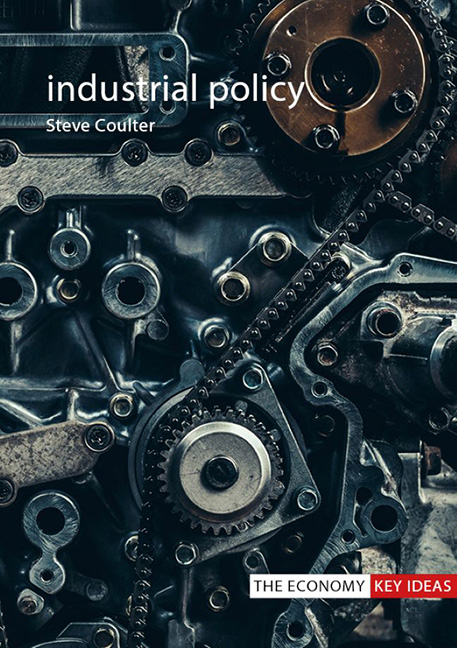Book contents
- Frontmatter
- Contents
- Preface and acknowledgements
- 1 Introduction: industry, economy andindustrial policy
- 2 States, markets and growth: the economics of industrial policy
- 3 Implementing industrial policy: the experiences of five countries
- 4 New horizons for industrial policy
- 5 Conclusion
- Further reading
- References
- Index
5 - Conclusion
Published online by Cambridge University Press: 20 January 2024
- Frontmatter
- Contents
- Preface and acknowledgements
- 1 Introduction: industry, economy andindustrial policy
- 2 States, markets and growth: the economics of industrial policy
- 3 Implementing industrial policy: the experiences of five countries
- 4 New horizons for industrial policy
- 5 Conclusion
- Further reading
- References
- Index
Summary
This book has presented and examined the main economic theories relevant to industrial policy. It has also analysed how the strategies enacted by various countries can be applied in specific policy domains. It is thus targeted squarely at both an academic and policymaking audience. For students and academics, the aim has been to show how economic principles can be practically applied in a real-world setting, and how the effects vary by time and place, and are mediated by institutions. On the other hand, for policymakers interested in how their interventions affect the economy, understanding some of the theoretical concepts may help them appreciate what is feasible and desirable, and provides some underlying reasons for why these interventions sometimes go wrong.
This concluding chapter offers some final practical observations. These are directed at policymakers in particular but are also a way of rounding off the theoretical discussions. The chapter ends with some suggestions for further reading.
1. Have a strategy and stick to it. This book has described many specific industrial policies. But governments looking to intervene effectively in their economies should develop an industrial strategy. This involves an understanding of both means and ends, and how they can be reconciled. Even at a basic level, industrial policies – for example, those concerned with correcting market failures in say, innovation policy – should be conducted as part of an overarching plan for raising competitiveness, rather than ad hoc interventions. At the most complex and ambitious levels, for example when tasked with addressing systemic issues like decarbonization, careful strategizing informed by clear objectives is even more important.
Approaching industrial policy systemically, via a (coherent) strategy, also encourages policymakers to think about how policies are actually put into effect, in terms of the responses they elicit from firms and other actors over the short and long terms. Successful practitioners of industrial policy understand that it is more important to create a climate of collaboration between government and the private sector than just to provide financial incentives and hope for the best.
Government itself is an important actor, and its credibility is always on the line here.
- Type
- Chapter
- Information
- Industrial Policy , pp. 131 - 134Publisher: Agenda PublishingPrint publication year: 2023



